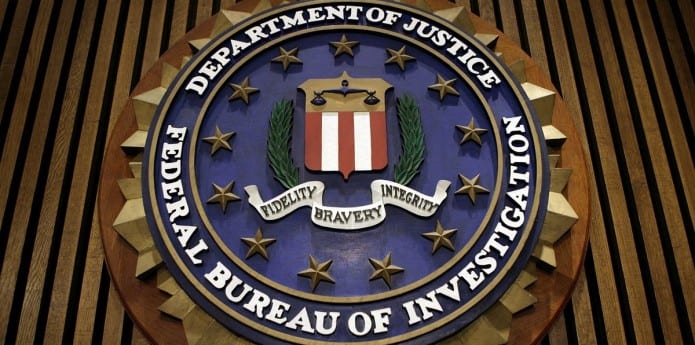FBI ordered by a US Court to reveal its surveillance program
According to a court filing released on Monday, the Federal Bureau of Investigation (FBI) has used a secretive authority to compel internet and telecommunications firms to hand over customer data including an individual’s complete web browsing history and records of all online purchases, without a warrant.
The documents are believed to be the first time the government has provided details of its so-called national security letters, which are used by the FBI to conduct electronic surveillance without the need for court approval.
The filing made public was the result of a 11-year-old case brought to court by Nicholas Merrill, founder of ISP Calyx Internet Access, who took the FBI to court after he refused to comply with a national security letter (NSL) he received in 2004, which contained a request for a subscriber’s personal data, including complete Web browsing history, IP addresses of everyone they corresponded with, and records of online purchases.
The court-ordered release on Monday shows the FBI believed that under the Patriot Act it could force online companies to turn over data simply by sending a National Security Letter demanding it. The data included an individual’s complete web browsing history, the IP address of everyone a person has corresponded with, email addresses, and records of all online purchases.
The FBI also claimed the authority to obtain cell-site location information with an NSL, effectively using a cell phone as a location tracking device. The FBI said in court filings that at some point it had stopped gathering location data as a matter of policy, but that it could secretly choose to resume the practice under existing authority.
National security letters are almost always bundled with a gag order, preventing Merrill from speaking freely about the letter he received.
While it was known that national security letters can demand customer and user data, it wasn’t known exactly what.
Merrill said in remarks: “The FBI has interpreted its NSL authority to encompass the websites we read, the web searches we conduct, the people we contact, and the places we go. This kind of data reveals the most intimate details of our lives, including our political activities, religious affiliations, private relationships, and even our private thoughts and beliefs.”
In his decision, Federal district judge Victor Marrero described that the FBI’s position was “extreme and overly broad.”
He also found that the FBI’s overbroad gag order on Mr. Merrill “implicates serious issues, both with respect to the First Amendment and accountability of the government to the people.”
It is the first time that a gag order had been lifted since the FBI’s authority to conduct warrantless spying was vastly expanded by the Patriot Act the in 2001.
The Patriot Act expanded the reach of national security letters when it was signed into law a month after the terror attacks in 2001.
More than 10,000 NSLs are issued to online companies by FBI officers every year without a warrant or judicial oversight, and almost all of those are accompanied by a complete gag order barring any public disclosure of what the FBI has requested or from whom.
Merrill is the first person to have successfully and completely lifted a NSL gag. Major companies, including Google, have challenged national security letters, but met with little luck. Recently, Microsoft had challenged an order, which led the FBI to withdraw the demand.

